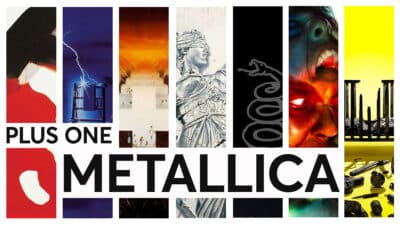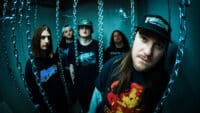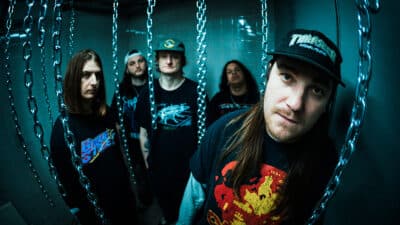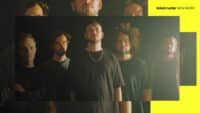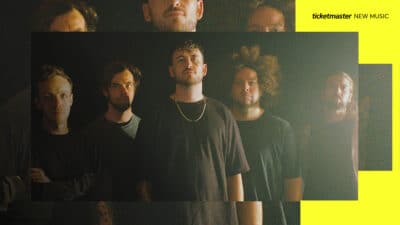Interview
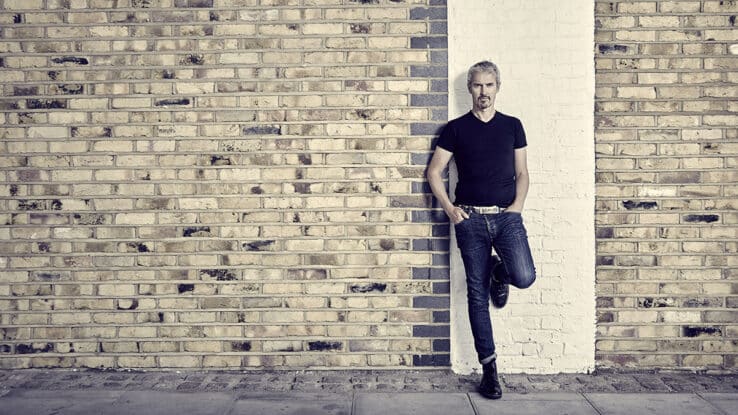
Interview
Mull Historical Society: “The more you create, the more you realise it’s a journey”
Writer and musician Colin MacIntyre talks bringing the literary world to indie-pop
No one could accuse Colin MacIntyre, the driving force behind Scottish indie-pop band Mull Historical Society, of lacking ambition. Aside from being MHS’s mastermind, he’s a celebrated novelist whose debut novel, The Letters Of Ivor Punch, bagged the 2015 Edinburgh Book Festival First Book Award. In recent years, he’s bolstered a successful writing career with forays into plays, while music has flickered like an unextinguishable and dependable candle in the background.
Mull Historical Society return after a five-year absence with their ninth album, In My Mind, There’s A Room. It’s a high-concept record featuring contributions from preeminent authors such as Nick Hornby, Ian Rankin, Liz Lochhead, Jacqueline Wilson, and more. Each was charged with envisaging a room that meant something to them. It could be metaphorical or literal, based on fact or drawn from fiction. MacIntyre then paired the results to music.
Here he tells us about how this could be just the start of an ongoing series, how being dropped by a major label gave him freedom, and how personal In My Mind, There’s A Room really was.
You seem so perennially productive, always working on some project or other. Do you ever sleep?!
Ha! I sleep quite well when I sleep! Actually, I like that moment before I fall asleep where I’ll think about what I’m working on. That’s when these sort of lightbulb moments come, and you think, ‘Alright, that connects with that…’. And I’ve realised that with anything creative, you do a lot of it when you’re not doing it.
What are your reflections on the In My Mind, There’s a Room process?
It’s been nice to collaborate with some great wordsmiths, obviously. It’s been nice to work with other people’s words. It almost feels like I’ve had my hand on their doors. [Their words have] taken me to Mexico City, to New York, to Dundee, to London. Yet, personally, I went back home to Tobermory on the Isle of Mull. That’s where I made it. At the same time, I could relate to, say, Nick Hornby’s song ‘Panicked Feathers’, as it was about a young boy in his bedroom in the height of summer. And, similarly, Ian Rankin’s ‘My Bedroom Was My Rocket’ was about how the things he’d do in his room would take him out in the world – I could very much relate with that as well.
It’s the first time in 20 years you’ve gone back to Tobermory to record. Is it true that Gordon Maclean, who mixed the album, had turned your grandfather’s old flat into a recording studio?
Yeah. You could have knocked me over when Gordon said what he’d done to the flat. I hadn’t been in it for 20 years. It was never the typical bank manager flat anyway because my grandfather (Angus MacIntyre) was a poet known as the Bard of Mull (as well as a bank manager). He would be visited by all kinds of characters. People would congregate in his flat for storytelling, poetry, and whiskey, and they’d often leave with a poem stuffed in their pocket and an overdraft they didn’t ask for!
Your late grandfather closes the album with a recital of his poem, ‘Memories Of Mull’. What made you add this to the record?
He was a real inspiration to me, so that’s why it’s the final track. It’s a poem which was recorded in that room back in the 70s. It was completely unexpected for me [to close the album that way], but Gordon turned to me halfway through recording and said, ‘It seems like these words are yours now. It’s like they’re passing through you’.
How did you go about getting the authors’ contributions?
I just put an email together explaining about my grandfather and how the respective authors had each influenced me as a writer. I remember Gordon saying, ‘Well, if we don’t hear back from anyone, we’ll just make an album anyway’. The first response I got was the next day, and it was from Nick Hornby. He said, ‘Hi Colin, how could I not be involved in this? Count me in!’. And then, Ian Rankin came back the day after and said, ‘I can get it to you by the end of the month. How does that sound?’. One by one, the authors all bought into it.
When did you start putting the wheels in motion?
I started reaching out to them about a year ago. I had most of their words back by the end of last year. Then, I did two recording stints in February and March, and it was mastered at Abbey Road at the end of April – those were the final “rooms”. The creative process turned around quite quickly, and it was nice to go back and share with the authors the finished work.
How did they respond?
Thankfully, the responses were all great – they were quite effusive! I think they were surprised that it turned around so quickly. Suffice to say, the two recording spells were really intense though. I think I worked Gordon to the bone, to be honest!
Tobermory, where you grew up, was a remote place where there were few distractions. Society and technology have both changed so much in the ensuing years. Have these developments impacted on your creativity?
I think so. It’s harder to concentrate at times. And then, you know, there’s family and other things that come into your life. I remember when I first came to Glasgow to study, I would walk the streets and have whole songs in my head, and it was like the Lennon and McCartney thing of having to make the song ideas memorable, because there was no way to document or capture them. I can still remember the influx of the city, all the transport and people, and all this stuff that I hadn’t really grown up around, and just being able to store loads of stuff in my head. I think I still do that, but it feels a bit more jumbled! But I think that over time I’m probably better at nailing things though.
You were signed to a major label at Warner Brothers, but you were dropped after your second album, Us. What did you learn from that period? Has time changed your perspective on the experience?
I say to young songwriters and people that I work with that it’s all about self-determination as much as anything. Randomly, I was watching the film Fame last night, and it’s as much about having hunger as talent. I think I always had that. The more you create, the more you realise it’s a journey. In the early days with Warners, I was given almost complete creative control. I remember that they wanted my face on the Us album cover but, otherwise, I was producing myself and so on. I wouldn’t change any of that journey. But I think, at the same time, widening out and adding in other ways of working like writing novels and plays – plus, I’m working on a musical now – I think a lot of these things wouldn’t have happened had my career continued down a more conventional route. And I probably wouldn’t have been happy. Deep down, I always wanted to branch out.
This latest project is such an interesting concept. Do you think In My Mind, There’s A Room could be the start of a series?
The collaboration element is definitely something I want to continue with, and we’ve had a few ideas where we’ve gone, ‘Okay, that’s for Room Two’, so I feel that it could be something that we continue. There are a load of authors I’d love to approach. Maybe I could do something with other songwriters as well because I’ve a list as long as my arm of people I love.
Any songwriters that spring to mind?
Well, if I’m being totally transparent, Stuart Murdoch of Belle and Sebastian. I really love what Stuart does. Plus, he’s written as well. Actually, I think I’ve got a list of musicians from ten years ago somewhere! Maybe Wayne [Coyne] from The Flaming Lips, and Thom Yorke from Radiohead. It’s probably the first time I’ve said it out loud that there could become a kind of series of rooms…
In My Mind, There’s A Room is out now on Xtra Mile Recordings, available here.





